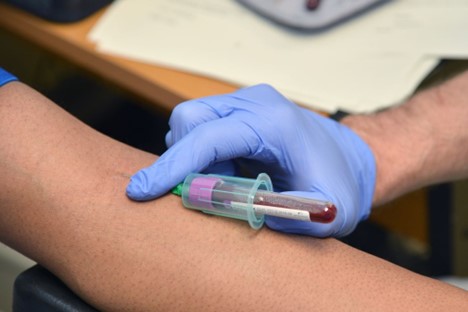Pregnancy is an exciting time for expectant mothers, but it can also be a time filled with uncertainty and questions about the health of their unborn child. One of the newer tests available to expectant mothers is the Non-Invasive Prenatal Test (NIPT), also known as the cell-free DNA test. This test is designed to screen for common chromosomal abnormalities in the fetus, such as Down syndrome, and has been a topic of discussion among expectant mothers and healthcare professionals. But what exactly is the NIPT test, and is it necessary for all expectant mothers?
What is NIPT test?
The NIPT test is a non-invasive prenatal screening test that analyzes fragments of fetal DNA that are present in the mother’s blood. This test can be performed as early as 10 weeks into the pregnancy and can provide information about the risk of certain chromosomal abnormalities in the fetus, such as Down syndrome, trisomy 18, and trisomy 13. Unlike traditional prenatal screening tests, the NIPT test does not pose any risk to the fetus or the expectant mother.
Accuracy of NIPT test
One of the major advantages of the NIPT test is its high level of accuracy. According to a study published in the American Journal of Obstetrics and Gynecology, the NIPT test has a detection rate of 99% for Down syndrome and other chromosomal abnormalities. This means that the NIPT test is much more accurate than traditional prenatal screening tests, such as the combined first-trimester or quadruple screen.
Do you really need the NIPT test?
The decision to take the NIPT test is personal and depends on various factors, such as the expectant mother’s age, personal preferences, and risk factors for chromosomal abnormalities. According to the American College of Obstetricians and Gynecologists (ACOG), the NIPT test is recommended for expectant mothers who are at high risk for chromosomal abnormalities, such as women over 35 years of age or women with a family history of chromosomal abnormalities. However, ACOG also states that all expectant mothers can have the NIPT test.
The NIPT test is not a diagnostic test and should not be used as the sole basis for making decisions about pregnancy. Suppose the NIPT test indicates an increased risk of a chromosomal abnormality. In that case, expectant mothers may need further diagnostic testing, such as chorionic villus sampling (CVS) or amniocentesis, to confirm the results.
The benefits of NIPT test
One of the biggest benefits of the NIPT test is that it can provide expectant mothers with peace of mind about the health of their unborn child. The NIPT test can help expectant mothers make informed decisions about their pregnancy by providing accurate information about the risk of certain chromosomal abnormalities. Additionally, the NIPT test can also give expectant mothers more time to prepare for the birth of a child with special needs, if necessary.
An insight from mamahood
In conclusion, the NIPT test is a non-invasive prenatal screening test that provides expectant mothers with valuable information about the health of their unborn child. While the decision to have the NIPT test is personal, it can be a helpful tool for expectant mothers who are at high risk for chromosomal abnormalities or who want peace of mind about the health of their unborn child. However, it is important to remember that the NIPT test is not diagnostic, and further testing may be required to confirm any potential abnormalities. It is also important to understand that there is a small chance of receiving a false positive result with NIPT, and it is crucial to fully understand the limitations and potential consequences of the test before deciding to have it. Ultimately, the decision to take the NIPT test should be made after a thorough discussion with a healthcare provider, considering individual circumstances, personal beliefs, and the risks and benefits associated with the test








